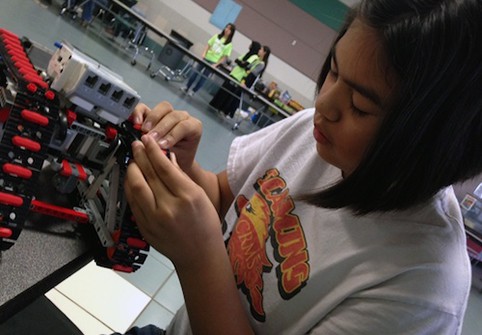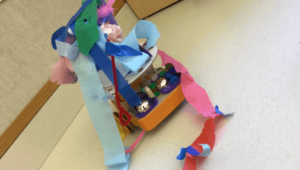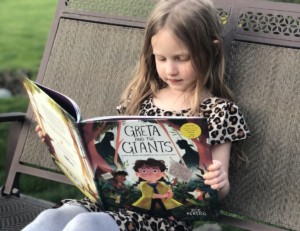Robots & Implications For Life On Planet Earth

“Historically what we thought was that robots would do things that were the three D’s: dangerous, dirty, and dull,” explains Ryan Calo, UW professor with an expertise in robotics. “Over time, the range of things that robots can do has extended.”
At a career center in Ohio, we saw high school students teaching adults how to program manufacturing robots–a sign of new high skill career pathways that combines working and learning with evolving technology.
A group of 5th graders from Linwood Elementary in Oklahoma Skyped me to discuss robots. In addition to participating in the First Lego League, Rebecka Graffigna’s team was investigating automated grading–because “teachers spend too much time grading”–and they came across the Hewlett sponsored Automated Student Assessment Prize. I mentioned the explosion of performance feedback that they are receiving from many new sources (learning games and content embedded, adaptive, and performance-based assessment). They shared my optimism about smart formative assessment and were already using Google APIs to develop an egrader prototype on Wix.com.
My new friends in Oklahoma were jazzed about a tech-enabled future but many people fear a jobless future — and their anxiety is not unwarranted: Gartner, an information technology research and advisory firm, predicts that one-third of jobs will be replaced by software, robots, and smart machines by 2025.
Author Ray Kurzweil anticipates that by 2029 robots will have reached human levels of intelligence. It’s hard to tell when we’ll reach the ‘singularity’ but it is clear that the class of ’25 (now primary students) will graduate into a very different job market.
Second Machine Age. Last year PBS NewsHour’s talked to authors Erik Brynjolfsson and Andrew McAfee of “The Second Machine Age” about what was different with this new wave of technological advancement: “In recent years, we are seeing a wave of technologies that can augment, automate all sorts of cognitive tasks,” he added, “and we think, ultimately, those will have as big, or an even bigger effect on humanity as the first industrial revolution.”
Implications. It’s hard to know how this will all play out but three near term educational implications seem clear.
1. Let kids show what they know. We saw a lot more maker an robotics resources at ISTE in July. Startups are selling cool kits to schools and parents–a sign of a big expansion of anywhere anytime learning opportunities. That suggests that it’s time figure out how to advance competency-based education because we’re clearly headed for a ‘show what you know’ world.
2. More interest-based learning. Finding ways to combine interest-based and standards-based learning is the most important learner experience (LX) design opportunity of our time. It requires teachers and parents to remain aware of expanding opportunities and encourage production, presentation, and reflection.
3. More deeper learning. The wonderful opportunities and challenges we can only imagine that our children will face got me thinking. If homo sapiens are to survive on this spinning orb, the young people in our schools will need to figuring out how to:
- Create broad access to learning opportunities
- Extend wellness and access to quality healthcare
- Create sustainable democratic communities
- Embrace personalization and privacy
- Broaden participation in free and transparent markets.
On a visit to the Environmental Charter School in Pittsburgh I saw 4th graders discussing urban mobility suggesting that meaningful prompts and projects can and should start early. The new opportunity requires us to strive for Deeper Learning for Every Student Every Day.
Parents can help by engaging children in discussions of the grand challenges. We devoted a chapter in Smart Parents to intentional parenting. The #SmartParents toolkit includes Carri Schneider’s 10 ways to inspire a love of learning.
It’s clear that our kids will learn, work, and play with increasingly sophisticated tools. It’s also clear that the contributions that will be valued will be rooted in creativity, critical thinking and collaboration. As teachers and parents, it’s time for us to be very intentional about the learning experiences we create and support.








0 Comments
Leave a Comment
Your email address will not be published. All fields are required.